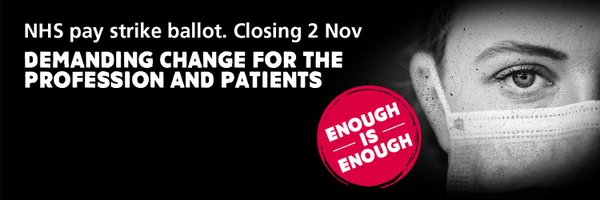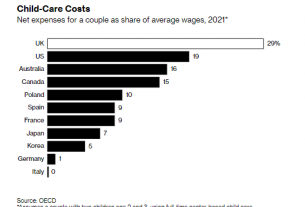On Thursday, nurses begin voting on the first-ever RCN strike over pay. Thousands of nurses have left their job adding to the NHS’ worsening staffing crisis. The NHS would face major disruption this winter if nurses vote in favour of industrial action. The ballot boxes open today, and nurses across the UK can vote until 2 November. Before walkouts can begin, the RCN ballot results must meet a set of criteria. One such precondition is that in England and Scotland, at least half of all nurses would have to cast their ballots, and 40 per cent would have to vote in favour of industrial action. Nurses are not the only staff group considering strike action with junior doctors and physiotherapists also threatening to walk out over pay.
For the first time in its 106-year history, the Royal College of Nursing is calling on its 300,00 members to vote in favour of industrial action. The result of the ballot is due next month and could pave the way for a historic RCN strike over pay. The union has said that the industrial action would only impact non-urgent care. Accident and emergency services would not be affected.
Across the UK, nursing staff have been offered varying rates of pay increases. In England and Wales, the governments offered an average 4.75 per cent salary rise while in Scotland, nurses have been awarded 5 per cent and in Northern Ireland, nursing staff are yet to receive their wage boost. The RCN is demanding an increase of 5 per cent over and above the current 12 per cent RPI inflation rate. Health Foundation thinktank research has indicated that in the decade between 2011 and 2021, in real terms, the average nurse’s salary fell by 5 per cent.
Speaking to the BBC, the RCN’s general secretary, Pat Cullen said:
“We’re not asking for the salaries of bankers or billionaires that seems to be the focus of this government.
“We’re just asking for a decent wage for our nursing staff so they can continue to do the brilliant job they do every day for their patients, and so that we can absolutely retain the staff that we’ve got.
“They need to give them a decent wage so they can look after their families, pay their bills.”
When asked whether strike action would jeopardize patient care on Radio 4’s Today Programme, Cullen said:
“Nurses will do nothing to add to the risk that patients are facing every single day as a consequence of not having those nurses in the system to look after them.
“I had the privilege to lead the first nurses’ strike in Northern Ireland for 103 years. That was done very safely, very effectively and totally professionally, and that put no patient at further risk. We had very clear protocols about organising it. There is nothing in our profession where we down tools and walk off wards or leave our patients in the community.
“We continue to provide critical services throughout any strike.”
YouGov poll shows public support for RCN strike over pay
A recent YouGov poll shows that two-thirds of the public support industrial action by nursing staff. Three-quarters of the survey participants believe there is a shortage of nurses when it comes to delivering safe patient care.
To reassure both ballotting members and the public, the RCN has published a series of explainer videos on their website.




